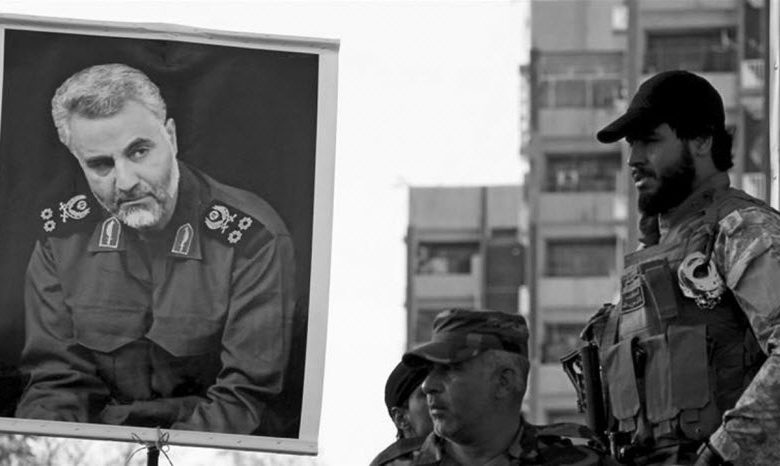Why Iran Regime Resorts to Proxy Warfare

By Mohammad Sadat Khansari
The Iranian Regime celebrated its 40th anniversary amid a serious, ongoing domestic and international crisis.
The anti-regime uprising, during which hundreds of thousands of people risk their lives to call for regime change, began in December 2017 and shows no signs of stopping.
Meanwhile, the US has withdrawn from the nuclear agreement and imposed further sanctions against the Regime for its ballistic missile programme and military adventurism.
Simply, the Regime is in serious danger of collapse.
However, that has not stopped the mullahs from their regional interference, where they use proxy militias, propaganda, and even puppet leaders to reshape the region into Iran’s Shiite Crescent. The mullahs now spend billions of dollars to control Syria, Lebanon, Iraq and Yemen, as well as billions more to support militias like Hamas and Hezbollah. Of course, the Iranian Regime does not merely rely on Shiite militias to destabilise the Middle East ready for the mullahs’ takeover. Time and time again, Iran has been caught funding Sunni terror groups, including Al Queda, proving that this is fundamentally not about religion, but about power. This has led many countries to express great fear over Iran’s influence in the Middle East during the Warsaw conference last month.
Then, there is Iran’s disinformation campaign, which seeks to promote the Regime’s point-of-view all over the world. Iran pours millions into this trumped-up propaganda machine, spreading the Regime’s agenda in dozens of languages, including English. The Regime has also established dozens of cultural centres and universities outside their borders to propagate the misinformation campaign.
But why would the Iranian Regime rely so heavily on proxy forces and propaganda? Well, the simple answer is that Iran lacks and real military might and understands that they could never take on a superpower (i.e. the US) or even a regional power (i.e. Saudi Arabia), so they resort to missile attacks, lies, terrorist attacks, and even cyber warfare. This keeps the Regime’s forces out of actual physical danger for the most part but has the added benefit that Iran can deny their involvement.
So what should be done?
Alberto M. Fernandez, the President of Middle East Broadcasting Networks (MBN), wrote: “A new American policy that seeks to seriously challenge Iranian hegemony in this region must factor in not only Iran’s nuclear and missile ambitions, and its substantial military proxies on the ground, but also the full range of Iranian power projection throughout society as a whole. Such a policy would point out how Iran is building a regional empire while its people at home struggle to find water and electricity.”

